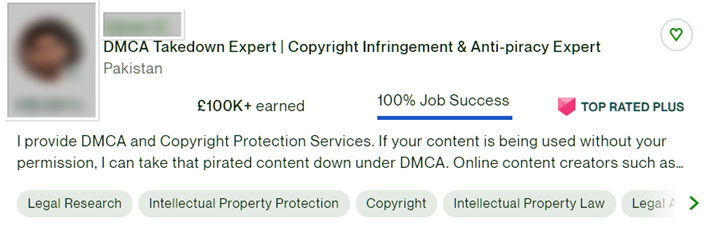 Over the past couple of decades, thousands of people have leveraged the masses of pirated content available online to make a few bucks here and there.
Over the past couple of decades, thousands of people have leveraged the masses of pirated content available online to make a few bucks here and there.
Others have thrown caution to the wind and set out in search of the big money. Launching full-blown pirate platforms or platforms that claim to be legitimate (but were actually full-blown pirate platforms), many believed that one day it would either be free drinks at the bar, or many years behind them. Could go either way, you never know.
Today’s pirate entrepreneurs have never had it so easy. Using pre-built sites and content APIs, committing to go full-pirate in the morning can mean running a site the same day. From there on, it’s just a simple case of keeping everything running, dealing with the whims of thousands of users, quashing a moderator mutiny three times a year, and the timeless classic, not getting sued or arrested. Simple.
Yet when all of that is completely under control, someone still comes along and starts issuing DMCA notices to Google, web hosts, and domain registrars. And guess what? Some are making a whole lot of money in the process, working from home, risk-free.
Making a Living: DMCA Freelancing
DMCA notices listed on the Lumen Database are an invaluable source of information when investigating instances of copyright abuse. Companies including Google and Twitter submit notices constantly and the overwhelming majority carry enough useful information.
Some information is redacted for privacy reasons, often when the notice includes the name of a private individual, for example. What stands out here is that there are many questionable notices that have the copyright holder and the submitter’s names redacted, meaning that it becomes extremely difficult to identify who is behind malicious behavior.
When disappearing down the rabbit hole recently, an accidental turn led to the freelancer site Kwork where it’s possible to hire someone to send DMCA notices to have content removed from Google, Bing, and social media platforms like Twitter and Facebook.

Through various means it was possible to link some of the freelancers on Kwork with redacted notices on the Lumen Database, not necessarily dubious notices in every case, but at least the reasons for the redactions became more clear. These freelance takedown agents act in an individual capacity while working for individuals, not companies.
Dozens of listings on Upwork offer similar services and one claiming to have “100% Job Success” immediately caught the eye due to the amount earned on the platform: £100K (US$128,340).
For perspective, the average salary in Pakistan is 81,800 PKR (Pakistani Rupee) per month, or around USD 287 (£223) according to May 2023 figures. To earn £100K, the average Pakistani would need to work for 37 years.

While we have no idea whether the services provided offer value for money, a claim on the listing (“My success rate is 100%”) implies, if not directly states, that online platforms always remove all links submitted by the agent. Multi-national anti-piracy corporations would certainly beg to differ and if deindexing whole websites is possible via Upwork, someone knows something about DMCA notices that nobody else does.

Taking Content Down – Send $20
The listings reveal that a disproportionate number of takedown agents report being based in Pakistan. One listing offers to remove up to 10 links for $20. The concerning thing here is the suggestion that DMCA takedown notices can target copyright-infringing content and also “malicious and defaming” posts.

The reference to becoming the client’s “legal attorney” may also generate confusion; in the unlikely event that does mean a qualified lawyer, hiring one who understands what the DMCA is for might be a better option. The listing also advises that “there is no screening process for this service” which doesn’t exactly inspire confidence.
Sounds Complicated, Better Hire an Expert
Additional alarm is raised by other items in sales pitches. “I have Removed DMCA Copyright Violations of my Clients content, the result was very stunning and effectively removed all the false DMCA claims and counter Claims Notices,” one reads. “And same as if you receive the false DMCA I will submit the counter notice also,” it continues.
One can only imagine what is going on here but there are signs that some of these agents are battling against each other, sending DMCA notices that are potentially wrongful and then being counterclaimed. It appears that counterclaims are thrown around with little respect for the fact that clients are effectively agreeing to be sued in the United States, if it ever came to that.
Copyright Blunders
Implausibly, respect for other people’s copyrights is also called into question. While it’s not really acceptable to use an OnlyFans logo to promote another business, the image below reveals that the ‘DMCA expert’ in question may have ripped off the logo owned by DMCA.com.

Criticism aside, there are listings on both sites that suggest some amateur DMCA agents might really know what they’re doing and could be of help to other self-employed people, especially those who work OnlyFans.
Interestingly, the image below from Twitter suggests that OnlyFans users can have content removed for copyright infringement too. We haven’t redacted anything here because the Kwork agent mentioned working for the client on his page and the part we did remove at the top was far more revealing. The important part is the withheld tweet.

The assumption here is that the OnlyFans user breached someone’s copyright and the tweet was removed. The reality is that she hired someone from Kwork, an apparent specialist in both DMCA notices and counternotices, and they took it down in error and then failed to correct their blunder.

The important lesson here is that there’s decent money to be made taking down content, and it doesn’t matter how many mistakes get made, or even if the law is abused, nobody is ever held to account. No qualifications necessary and no screening. Essential requirements? $20 should do it.
Image credit: pixabay/geralt





